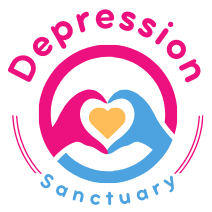Getting a good night’s sleep is very important in how you feel. If your sleep is of poor quality, it can leave you feeling tired, grumpy and blue the next day. And, over time, not getting enough restful sleep can lead to feelings of depression. A very important part of both preventing and relieving your depression is making certain that you get good rest each and every night. If you know how to sleep better, you will begin to feel better.
How to Sleep Better
In order to sleep better, you will need to practice good sleep hygiene. In other words, you should develop certain habits which are conducive to getting good sleep. Among these habits are:
Always go to bed and wake at the same time, even on weekends.
This ensures that your body is on a regular schedule, falling asleep and waking at your desired times. Set your bed time to allow you to get adequate rest by the time that you need to wake up. If you are allowing yourself enough time to sleep, you should begin to wake up on time without the need of an alarm clock.
Create a relaxing bedtime routine for yourself.
Include activities that make you feel relaxed and calm, like taking a hot bath, drinking a soothing cup of herbal tea or quietly reading a book. This will send the signal to your body that it’s time to wind down and sleep.
Turn the lights down low.
Our brain responds to the level of light in our environment. When the light around us is bright, this sends a signal that it’s daytime and we should be awake and alert. And, when the light begins to dim, this triggers our brain to release a chemical called melatonin which makes us feel sleepy. So, if we keep on bright artificial lights in our house at night, it fools our brain into thinking it’s still daytime, keeping us awake. We want to lower the light and tell our brain that it’s night time.
Avoid daytime naps if possible.
This is especially important in the beginning, when you are working to get yourself on a set sleep schedule. You want to be feeling sleepy when bedtime rolls around; and, if you nap, you won’t be sleepy when bedtime comes. Obviously, if your safety is at stake, it may sometimes be preferable to take the nap.
If your mind is racing and you just can’t stop thinking, get out of bed and do something distracting until it stops.
The thoughts will subside much more quickly if you don’t lie in bed focusing your entire attention on them. Once they are reduced and you feel sleepy, go back to bed. You will probably feel tired the next day, but keep your regular wake up time and avoid napping and you should be able to get to sleep much easier the following night.
Another strategy you might also want to try is making a to-do list. Researchers found in a 2018 study found that students were able to fall asleep faster if they made a list of the things they needed to accomplish the next day. It seemed to help them let go of their worries and stop obsessively thinking about what they needed to do.
Avoid caffeine in the late afternoon and evening.
Caffeine is stimulating and it’s effects can last for several hours after, making it difficult for you to fall asleep.
Avoid exercise in the late afternoon and evening.
While regular exercise is very good for you and can help you sleep better, it triggers the release of brain chemicals called endorphins which may interfere with your sleep if you exercise later in the day.
Make your bedroom a cool, dark, quiet, comfortable place.
It’s harder to fall asleep if you are busy thinking about how hot it is or how lumpy your mattress feels. If you live in less than ideal conditions, use tricks like blackout curtains or a fan for white noise to block out outside distractions.
Avoid using alcohol and sleeping pills.
While they will make you fall asleep, you will most likely wake up feeling groggy, tired and unrefreshed. A much better choice is a supplement called melatonin. This is the same hormone that was mentioned above that your brain produces to make you fall asleep. It can be purchased without a prescription from most stores that carry dietary supplements.
My favorite brand of melatonin that I know works well is Puritan’s Pride.
Simply allow the tablet to dissolve under your tongue about an hour before bedtime and you should be feeling sleepy by the time you go to bed. There are also liquid formulations that you can use in a similar fashion.
Nancy Schimelpfening is the founder of Depression Sanctuary. Unless otherwise stated, all of the content on Depression Sanctuary is written by and maintained by Nancy. Nancy has a master’s degree in community health education from Old Dominion University in Norfolk, VA. She was the About.com (now Verywell.com) expert on depression from 1998-2016. She has also written for other online publications, including Healthline, Healthgrades Professional, Health Digest, and MindBodyGreen.
